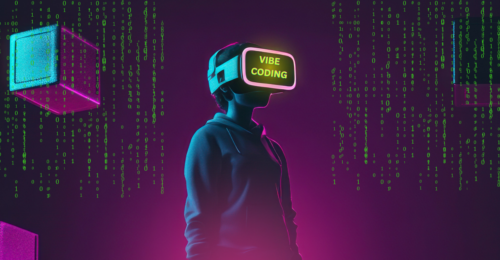3 Skills For Digital Transformation In 2023 and How to Hire for Them

The race for qualified talent is on. As your digital transformation journey continues, it’s important that your new hires have the skills necessary to integrate into a growing and changing organization. Tech giants with the resources to offer competitive salaries and hardy benefits packages make it more difficult for smaller organizations to recruit and retain excellent candidates.
Core technical competencies are necessary to ensure your candidates’ success in their new role, but be mindful that an aptitude for learning is equally important for employee growth. By focusing your hiring efforts around learning and other soft skills, acknowledging that additional technical experiences can be gained on the job, you ensure that you are hiring malleable candidates with strong foundational skills. Here are three skills required for successful digital transformation and how to hire for them.
Top skills to prioritize for digital transformation in 2022

Critical Thinking
Assessing critical thinking skills should be among the top priorities when hiring, for a few reasons. Largely, critical thinking is among the most sought-after candidate qualities, but also among the hardest to find. It is also cited as one of the most difficult skills to teach and cultivate within the workplace. Industry-specific hard skills are teachable through training and onboarding programs, while critical thinking can take much longer to improve. Choose to prioritize critical thinking skills when evaluating potential candidates.
First-round interviews are an excellent time to assess an applicant’s high-level thinking. To evaluate the way your potential employee evaluates information, processes it, and provides meaningful, strategic solutions, ask multipart questions. For example, Harvard Business Review suggests asking a candidate, “When you are working on a strategic project in your current job, how do you go about identifying the relevant stakeholders across the firm?” Questions like these give you insight into how a candidate thinks about a problem and whether or not they would be a good fit for your organization’s work environment.
As you search for critical thinkers, look beyond traditional backgrounds or areas of study. Be open to a diverse set of applicants that may surprise you with the way they approach a challenge.
Adaptability
Similar to critical thinking, candidates that are highly adaptable are valuable to organizations that are amidst a process change. Adaptability is important for digital transformation as companies transition from remote to hybrid and in-person work, for succeeding on a flexible team, and for growing and expanding as roles evolve.
Three things can help you as a hiring manager to screen for adaptability among applicants:
- First, ask the right interview questions. Questions that simultaneously assess how candidates have performed in previous roles while also prompting them to show some personality can help you thoughtfully evaluate if they are adaptable or not.
- Second, look for calmness and confidence during the interview. Candidates who have trouble collecting themselves under pressure won’t be the most adaptable in a high-stakes work environment.
- Finally, set the right expectations for what the first months will look like in this role. The more you can prepare your applicants upfront, the better they will be able to navigate the changes that come.
Teamwork, Collaboration, and Communication
As your organization grows, accountability is important. Both in taking responsibility for your actions (good and bad) and supporting your team members through adversity. Seek to hire team members who can be successful as team leaders and followers—working in whatever role advances the team’s goal most efficiently.
To gauge the collaborative skills of your potential new hires, take the time to speak with candidates’ references. Specifically, come with a set of questions that goes beyond the basics. Ask previous employers explicit questions like, “how does candidate X respond to constructive criticism?” or “what is candidate X’s strongest attribute when it comes to working on a team?”
Finally, giving potential candidates the opportunity to meet with as many members of the team as possible can ensure that strong relationships begin to form even during the interview process. Your trusted team members may uncover red flags you hadn’t seen previously or help move the needle on a candidate you were apprehensive about.
With open communication, you can build teams that will develop with your organization as it grows—furthering your digital transformation journey.
Further Reading
Get advanced recruiting insights delivered every month
Related reads
Vibe Coding: Shaping the Future of Software
A New Era of Code Vibe coding is a new method of using natural language prompts and AI tools to generate code. I…
Guide to Conducting Successful System Design Interviews in 2025
Article Summary Introduction to Systems Design Common System Design interview questions The difference between a System Design interview and a coding interview Best…
How Candidates Use Technology to Cheat in Online Technical Assessments
Article Summary How online assessments have transformed hiring Current state of cheating in online technical assessments Popular techniques candidates use to cheat Steps…
Talent Acquisition Strategies For Rehiring Former Employees
Former employees who return to work with the same organisation are essential assets. In talent acquisition, such employees are also termed as ‘Boomerang…
Automation in Talent Acquisition: A Comprehensive Guide
Automation has become a major element in the modern-day hiring process. The automated hiring process gained momentum since the advent of remote work…
Predictive Analytics for Talent Management
The job landscape in today’s age is highly competitive for both job seekers and hiring managers. Finding the right talent under such conditions…















